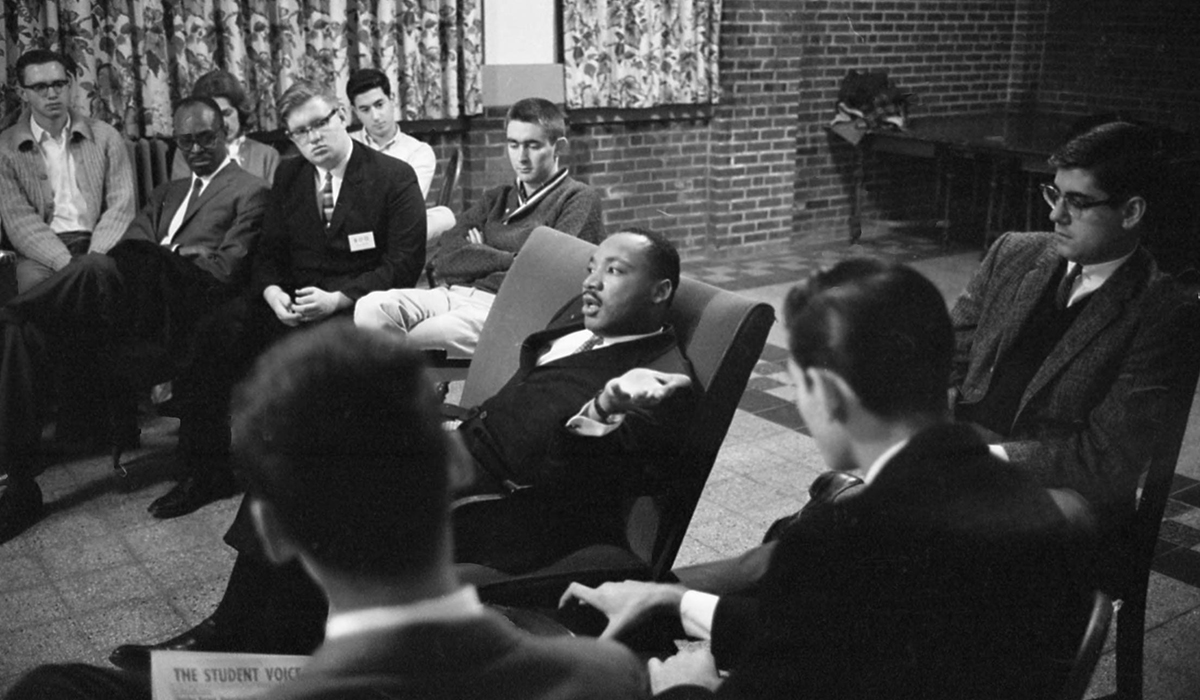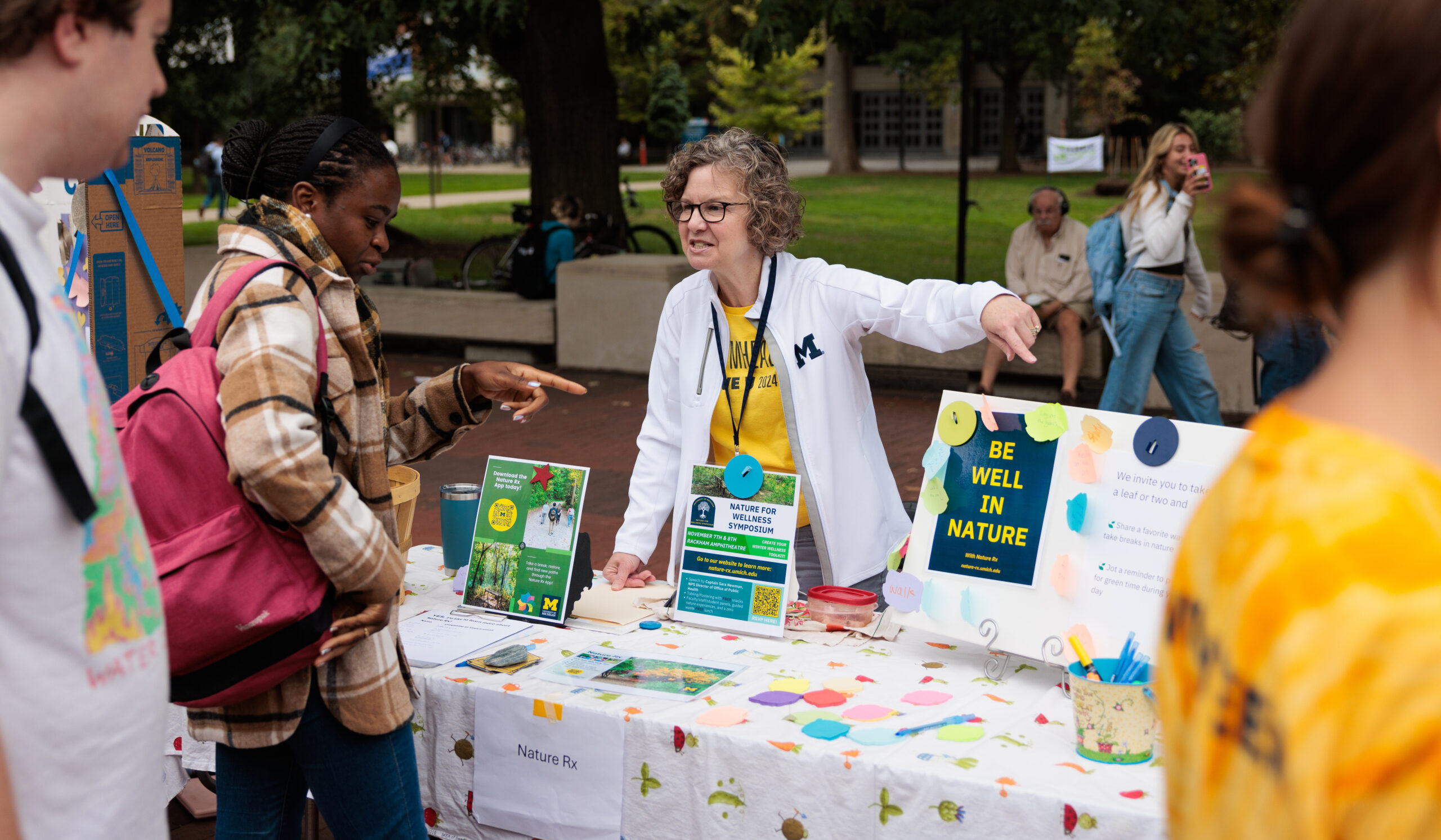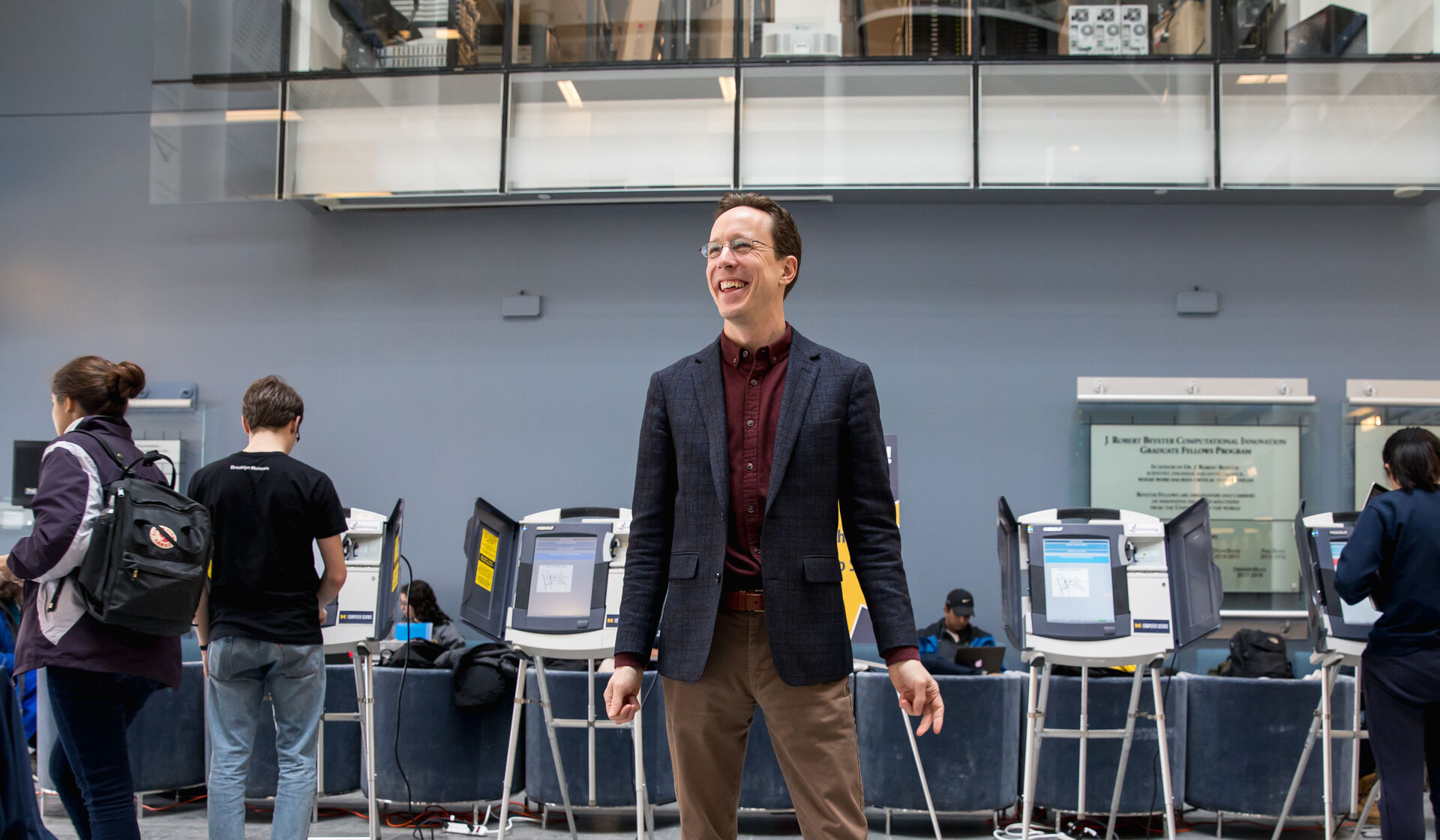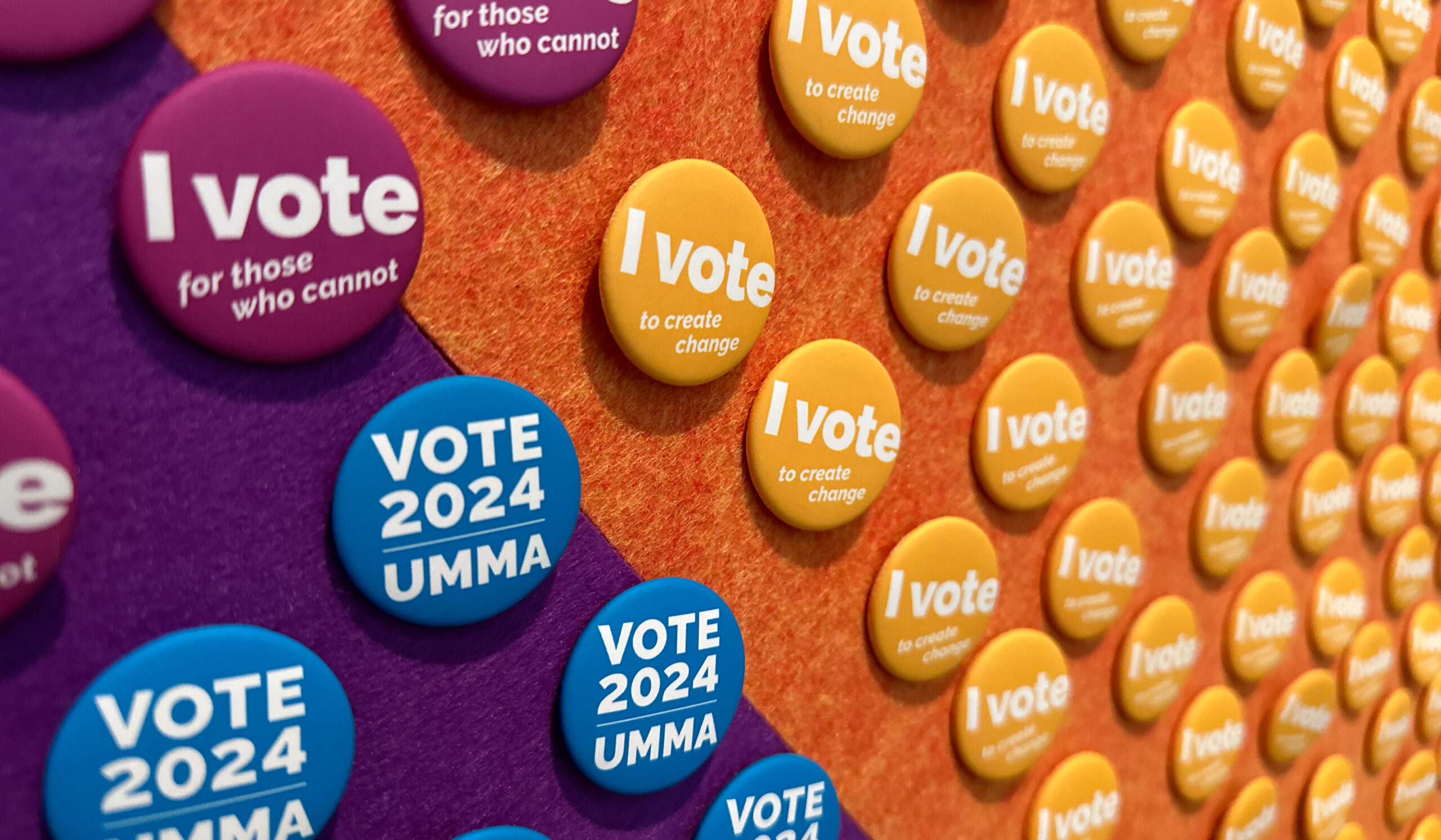U-M’s annual Rev. Dr. Martin Luther King Jr. Symposium kicks off on Jan. 18, continuing the tradition of reflecting on his legacy and applying the lessons to modern social justice movements. But what was the University reaction to his campus visit in 1962?
Much of the front page of the Nov. 6, 1962, edition of The Michigan Daily was dedicated to Congressional and gubernatorial elections, U.S.-Cuba-Russia relations, and an Ann Arbor ordinance aimed at curbing conflict between University students and local high schoolers. But two entries were dedicated to the Nov. 5 appearances of King, who spoke twice at Hill Auditorium and led an informal discussion at the Michigan Union.
King’s speeches to full audiences at Hill covered two broad topics: “Moral Issues in Discrimination” and “What Does the American Negro Want? — The Future of Integration.” Among his words were the famous quote “We must learn to live together as brothers or we will die together as fools.” King also advocated for students’ full involvement in social movements. This contrasted with U-M President Harlan Hatcher’s stance in an address from the previous month, when he encouraged students to restrict their activism to campus. In King’s view, an education involved “being true to studies yet devoting oneself to a significant cause like integration.”
The other, arguably more prominent Daily report on King’s visit revolved around his controversial advice to students. During his discussion at the Union (pictured), he responded in favor of theoretical civil disobedience against existing laws.
“Yes, I would certainly advocate civil disobedience if there are state laws that are unjust and morally wrong, and are used to preserve a system which is wrong.” The issue at the time involved a recently passed bylaw by the board of regents that prohibited guest speakers from advocating or urging audiences to take actions that went against U-M rules or were illegal under state or federal law. Multiple regents, however, expressed the opinion that there was no violation since King did not call for action against anything in particular. Ultimately, no official University action materialized against King or the event organizers.
Gregory Lucas-Myers, ’10, is senior assistant editor of Michigan Alumnus.





